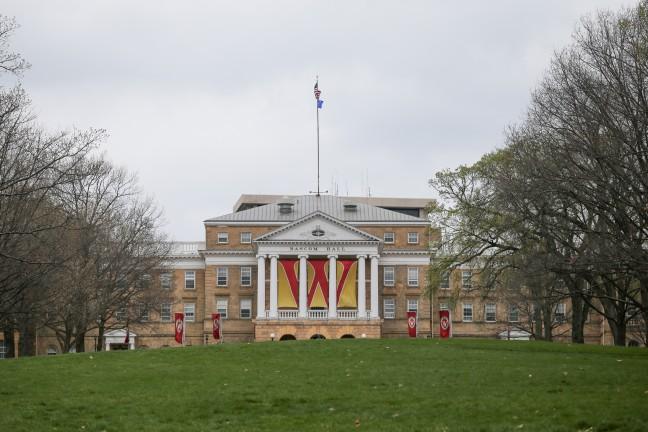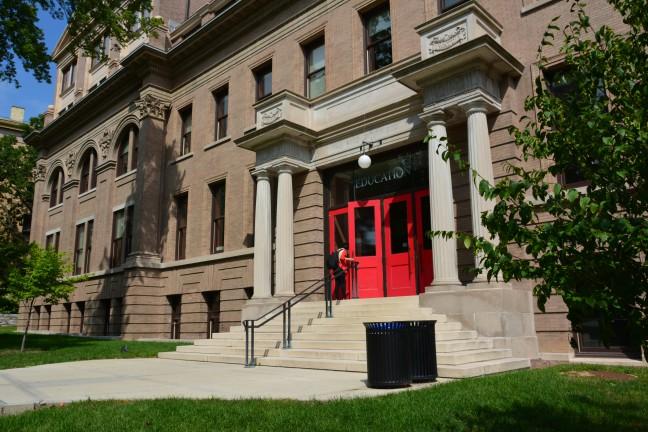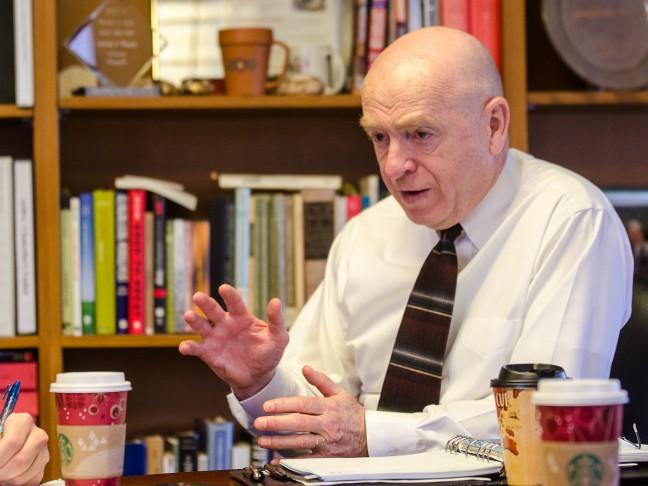With hopes for a
cleaner and more sustainable Wisconsin, students and faculty at the University
of Wisconsin-Stevens Point launched a new green program Wednesday.
The unveiling of
the Wisconsin Institute for Sustainable Technology was held on campus and
featured speeches from Rep. Dave Obey, D-Wis., Chancellor Bernie Patterson and
other prominent UW-Stevens Point faculty members.
Stephen Ward,
executive director of university relations at UW-Stevens Point, said that
although Wednesday night’s event marked the official launch of the initiative,
it has been under development for over a year and has various projects already
underway.
“In a sense, the
event is more of a celebration,” Ward said. “We have WIST. It’s here to stay,
and we have a new executive director which we’re really excited about.”
UW-Stevens Point
hopes the institute will aid Wisconsin businesses by creating new sustainable
practices, Ward added.
“The institute aims
to find solutions and create technologies that make the most of the natural
resources we have here in Wisconsin, and that can be applied to businesses in
need of sustainable solutions,” Ward said.
The institute’s new
executive director, Paul Fowler, was introduced to the public at the event.
Fowler said he
plans on having the institute conduct research that will champion and deliver
sustainable solutions to businesses throughout Wisconsin.
“My intention is to
get around the state and meet with companies and stakeholders and try to develop
some collaborations,” said Fowler, a Welshman who recently arrived in
Wisconsin. “We want to engage with as many small businesses, medium-sized
businesses and large businesses that can benefit from sustainable
technologies.”
Ward said the
Institute has a biofuels project already in progress that aims to develop a
process in which diesel fuel is derived from wood pulp.
Other upcoming
projects include life-cycle assessments, new methods for analyzing pollution
and researching “greener” ways to do chemistry, Fowler said.
Ward said
UW-Stevens Point places a heavy emphasis on student involvement, and the
university’s small size allows students easy access to the institute.
“One thing we know
about our students today is that anything related to sustainability and
conservation, they’re all over in a good way,” Ward said.
He added that most
of the current projects involve undergraduates doing research alongside faculty
members.
Fowler said the
institute’s research is funded by various federal grants and departments,
including the U.S. Department of Defense and the U.S. Department of
Agriculture.
Despite the federal
funds, the institute aims to be financially self-sustaining in the long-term,
according to a UW-Stevens Point fact sheet on the institute.
While most of the
projects draw on faculty and students from the college of natural resources and
the college of letters and sciences, Ward said UW-Stevens Point hopes to make
the initiative a multi-disciplinary effort that would include faculty and
students from all departments on campus.
“One day the goal
is to have [the institute] in its own facility, but the demand to get this
thing rolling is running ahead of the ability to fund new space,” Ward said.
















